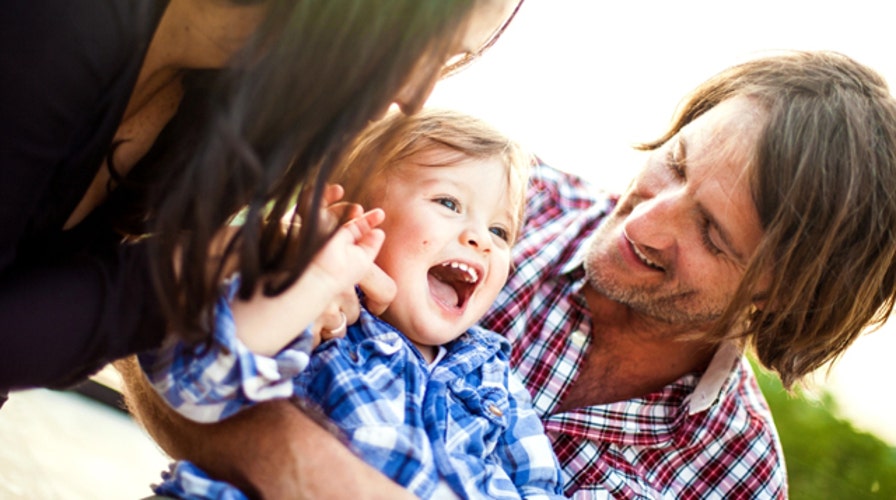French parenting techniques
Food and wine aren’t the only stellar exports from France. Pamela Druckerman, author of “Bebe Day by Day: 100 Keys to French Parenting,” says parents in France have a much different outlook on raising kids. She shares her best tips for healthier and happier kids with Dr. Manny
Picture this. You’re in the cereal aisle of the supermarket and your toddler starts to act up. He flails his arms, begins the tear-fest and screams to the point that customers in the frozen-food section hear him.
What’s a parent to do?
You may tell him to hush, offer a lollipop if he stops, or yell at him and tell him his behavior is terrible. Maybe in the past, you’ve done all three. But would you yell at your young child and condemn his behavior if you knew it could cause lasting harm?
‘I’m 5 and I Know Who I Am!’
By the age of 5, children have a sense of self-esteem as strong as an adult’s. That’s according to a new study by the University of Washington, which explains that this important personality trait is already in place before children begin kindergarten, and it remains relatively stable across one’s lifespan.
Helping to foster a positive self-image at an early age can lead to better self-esteem later in life. And part of helping to mold children’s self-esteem is the way parents reprimand them.
Krystin Vecchione of Paramus, New Jersey, a mother of two sons ages 2 and 11 weeks, is worries that “everything I do will have an impact on (her older son’s) self-image and self-esteem.”
“I try very hard not to yell at him, but sometimes I do get aggravated and yell,” said Vecchione.
A child’s self-esteem begins to form at age 3 and parents play a crucial role in it.
“When you yell or punish, you shift a child’s focus. His focus moves from what he’s done, to retreating inward to protect himself from the intensity of the yelling and punishing,” said Sharon Silver, the author of “Stop Reacting and Start Responding: 108 Ways to Discipline Consciously and Become the Parent You Want to Be.”
“His retreat makes him far less able to truly hear you and do as you ask,” Silver told LifeZette.
So, what do you do when your child is acting out? How do you react?
Silver advises parents to take a step back and realize the difference between reacting to and responding to a child’s bad behavior.
“Reacting is an unconscious automatic act rooted in the need to shut down behavior,” Silver told LifeZette. “Responding is a conscious, mindful act that addresses what motivated the misbehavior in the first place, and teaches those skills as part of correcting behavior.”
Praise Goes a Long, Long Way
Praising is just as important in the formation of self-esteem as the way parents punish their children.
Vecchione, who holds a degree in education, realizes this and makes sure to acknowledge the good along with the bad.
“When my son does something, or says something for the first time, I tell him how proud I am of him, and if it’s a really big deal, I get really excited, and usually — so does he,” said Vecchione.
Silver said parents can change their approach to their children’s bad behavior in order to boost their self-esteem, even if yelling has been a common reaction in the past.
“When you shift things you send the silent message, ‘I believe in you and your ability to get it right,’” Silver told LifeZette. “If a child gets that message far more often than messages that he’s wrong, bossy, or incapable, then things will begin to shift.”
The next time your child starts acting out, Silver said to take a step back. Instead of yelling for bad behavior, try asking three questions: Is what he did kind? Was it safe? Was it respectful? These questions begin the process of change and teaching without categorizing or labeling, which is much better for a child’s self-esteem than criticism.
More from Lifezette.com:
Gift Alternatives For Kids: 10 Cool Ideas
Common Core’s Messy — and Moronic — Math
Throwback Movies Your Kids Will Love
Cinnamon-Wrapped Candles: This sensational project leaves your room smelling cozy and festive


